Meet The Kids Who Convinced 150,000 Students To Skip School For Climate Action
"I often thought to myself striking for my future will teach me a lot more about myself and my future than Pythagoras' theorem will ever do."

Who can forget our Prime Minister standing up in parliament a year ago and declaring, “what we want is more learning in schools and less activism in schools”?
That didn’t sit well with 13-year-old Billie Tristram — in fact, she took it as a challenge.
Billie was an organiser of one of the largest youth-led movements in history, when more than 150,000 students walked out of classrooms across Australia to demand climate action.
The first School Strike 4 Climate rally occurred on March 15, 2019, spawning a movement which got just as much support as it did criticism.
Junkee spoke to some of the students who vlogged the whole experience — including Billie, who is now 14 and in her second year of high school, Anthony James and Fatima Kidwai who are now 19 years old; Tiara De Silva, Marco Bellemo, Doha Khan and Maiysha Moin, who are all now 18.
Their vlog footage has been used in a new documentary series Youth on Strike!, which gives an unfiltered, behind-the-scenes look at the student-led movement, from the mouths of the students involved.
Different Backgrounds, Same Goal
The School Strike 4 Climate might have been started by one Swedish teenager, but it managed to unite students around the world.
Not all of them fit the profile of your typical “school striker” — Anthony, for example, is a former Young Liberal from Victoria.
He joined the Liberals in 2017; two years later (almost to the day) he found himself actively campaigning against the party.
For a while Anthony volunteered for Josh Frydenberg during the MP’s time as Environmental Minister, but decided to leave the party after seeing no room for moderate Liberals in Victoria.
“My family is quite conservative though, which can often lead to some loud dinner conversations,” he said.
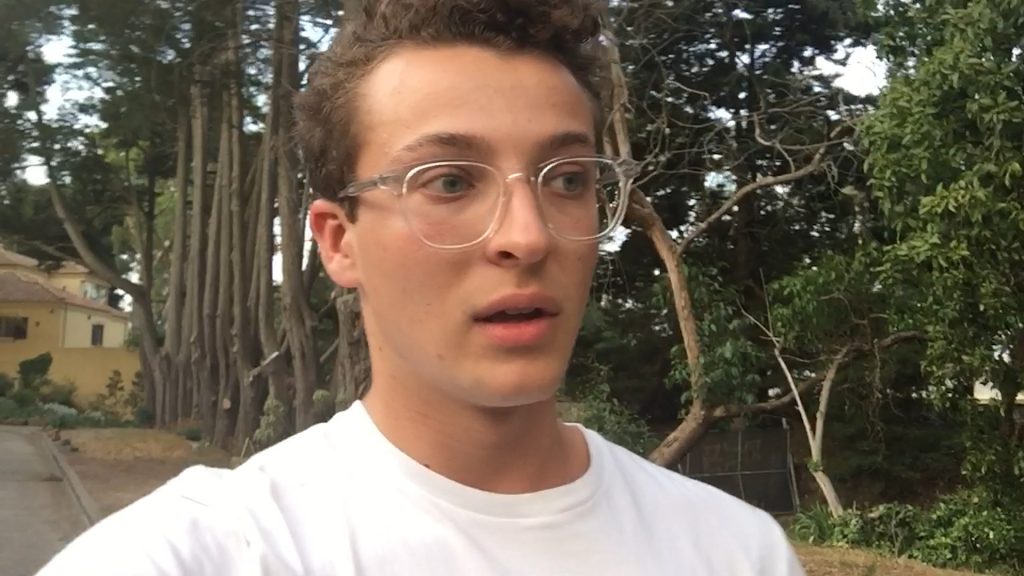
Anthony James was 18 when he got involved with the School Strike 4 Climate movement, despite the reservations of his conservative family.
“The bit that caught them off guard was potentially the size of the commitment, the timing of it around the election, and how much further it drove me towards climate action.
“They’re a little sick of hearing about climate change from me, but it was always an uphill battle with them. Especially with a father that, until recently, was sceptical about climate change being man-made.”
He’s not the only one to come up against this kind of resistance.
Billie, for example, lives in Townsville where the mining industry still receives huge support. That didn’t stop her from spearheading their strike, even as she worried that no one would bother showing up.
“Since it wasn’t being talked about or taught in schools, I knew it was up to me,” she said.
“I thank Townsville for being hard on me, because it made me the activist I am today.
“I will try my best to make this world a better place — whatever age and whatever it takes, count me in.”
Other school strikers just appreciated the chance to have a voice. Without the ability to vote, this is their only real way to engage with democracy, something that Fatima appreciates more than most.
Fatima spent most of her childhood in Saudia Arabia, and now that she’s in Australia, she plans to make the most of the privileges she has here.
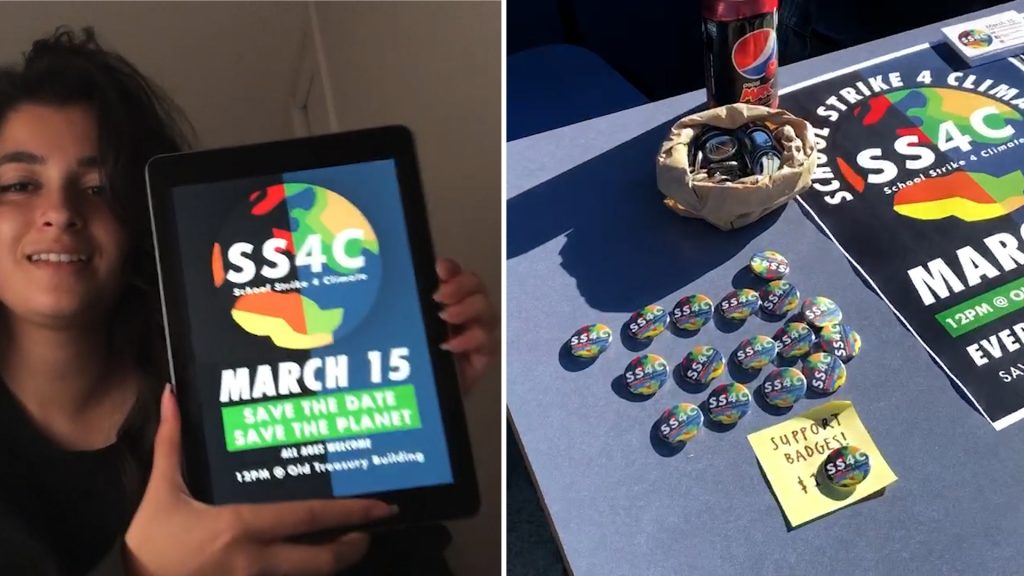
Fatima Kidwai was keen to use her voice for the SS4C movement after growing up in oppressive Saudia Arabia.
“That idea of privilege actually does stem from my time in Saudi Arabia, where I was never able to speak my mind, and organising some sort of mass movement would’ve been a dream for me, never a reality,” she said.
“It’s really shown me the value of being able to really stand up for what I believe in, especially as a woman.”
The idea of privilege is also something that inspired Melbourne student Marco — he feels he has a responsibility to fight for action on behalf of those who can’t.
“My family are not active campaigners or activists and politics wasn’t even a discussion until a few years ago, when I started to understand the enormity of the climate and ecological crisis and how it’s interlinked with all the other crises in current society,” he said.
He first started campaigning on social and environmental issues in 2017, but always noticed an absence of school students, which is what led him to the School Strike 4 Climate.
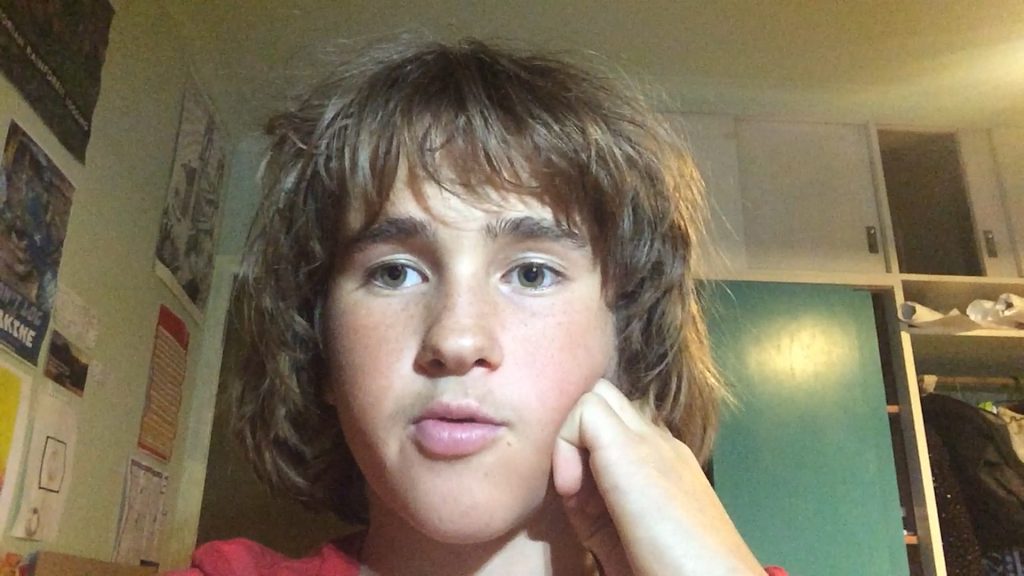
Marco Bellemo is still heavily involved in a number of activist movements.
Maiysha was also involved in other strikes in Melbourne before this, and said she was liked being able to make a difference “within the policy and leadership vacuum surrounding climate change”.
“As a young woman of colour, it was incredibly empowering to demonstrate the diversity of the climate movement and represent an intersectional minority group as I led students on strike through Melbourne’s CBD,” she said.
That diversity feeds into some of the core principles of the SS4C movement; to not only be student-led, but also inclusive and non-partisan.
Balancing Schoolwork With Strike Work
With assignments mounting, exams approaching and homework piling up, high school can be hard enough without the added pressure of organising a nationwide movement.
That’s not to mention the flak they also copped from politicians, like Resources Minister Matt Canavan.
“The best thing you’ll learn about going to a protest is how to join the dole queue,” he said in 2018, after a separate climate rally which also saw thousands of students walk out of school.
But comments like that, and the one from Scott Morrison, were only taken as a challenge by Billie.
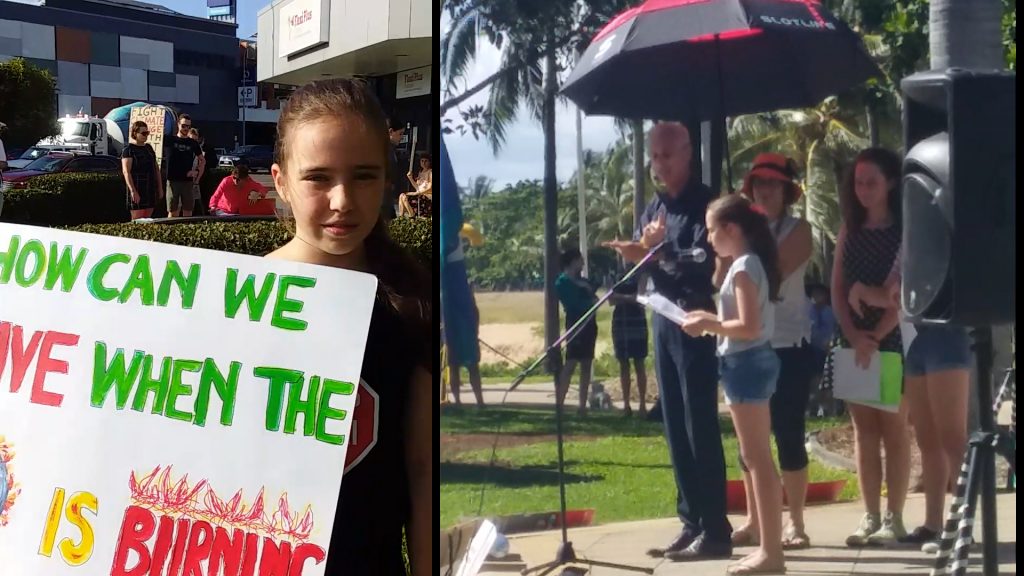
Billie Tristram was only 13 years old when adults started attacking her for her involvement in the school strike.
“To (Scott Morrison) I say ‘I can do both’,” she said.
“My family has always been big on education, so letting my grades drop wasn’t an option.
“I often thought to myself striking for my future will teach me a lot more about myself and my future than Pythagoras’ theorem will ever do.”
Marco had a similar attitude. Like many of the others he juggled a number of assignments all due around the strike day and struggled with fatigue while trying to find a balance.
“I decided to prioritise school strike work over schoolwork because if there isn’t emergency speed climate action, then I don’t see any future that current education can prepare students for,” he said.
Maiysha took a different view; as a scholarship recipient and Environmental Captain at her school she felt the pressure to maintain a high academic standard.
She was also determined to get a good ATAR so she could study medicine, although she’s since decided that law fits her passion for social justice better.

Maiysha Moin felt pressure to still exceed in her studies, and had to deal with an exam on the day of the strike.
“While climate change is a threat to my future, I believe that a career in a field of influence would create a greater impact on the wider Australian community,” she said.
She actually made it to the strike late because she had an exam on the same day that the school refused to change, something she wrestled with in the documentary.
Each student balanced their newfound workload differently — Fatima, for example, sacrificed her entire social life and hobbies to devote more time to strike work and schoolwork.
Some also had different levels of responsibility within the movement which added further pressure. Doha was the lead organiser of Adelaide’s SS4C branch, and admitted she did not get the perfect balance.
Despite usually aiming for an A+ standard, she found herself failing her maths subject in their final year of high school.
“For me, strike work was often more urgent and important so I prioritised that over things like studying for tests and doing assignments … but I don’t regret it at all.
“I feel like, through my work as an organiser, I was able to contribute to the bigger picture and gain real-world learning experiences that I would never be able to gain through a classroom setting.”
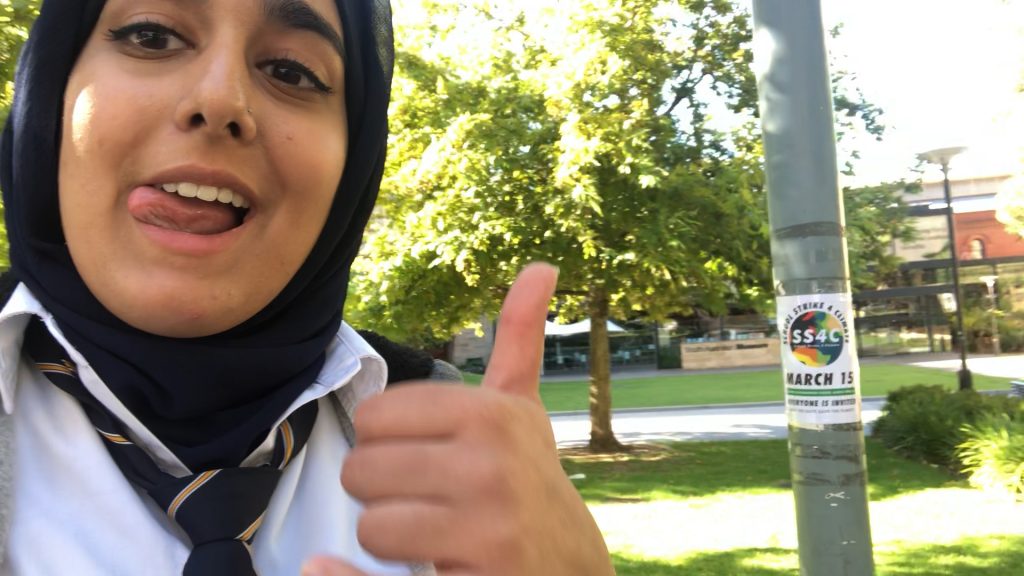
Doha Khan was the lead organiser of the Adelaide School Strike 4 Climate movement.
Anthony was relatively lucky — he joined the movement shortly after finished year 12, but still had to deal with his family pressuring him to get a job.
“I’d much rather be meeting with other organisers or unions or supporters to build something, solve problems and think outside the box than peddle shirts at $49.99, or sit behind a computer doing pointless admin,” he said.
Dealing With Online Bullying
A shared experience for many of them unfortunately, was online abuse. Billie, for example — who was 13 at the time — had people saying they would pay to see her beaten up.
Tiara, from western Sydney, also got used to hearing people calling her “overbearing” or “bossy”, and for a while kept her mouth shut over fears of further judgement.
“Since both of my sisters are lawyers, I started to look at certain areas of the world someone my age typically wouldn’t have interest in; politics, and economic and environmental matters on a global scale,” she said.
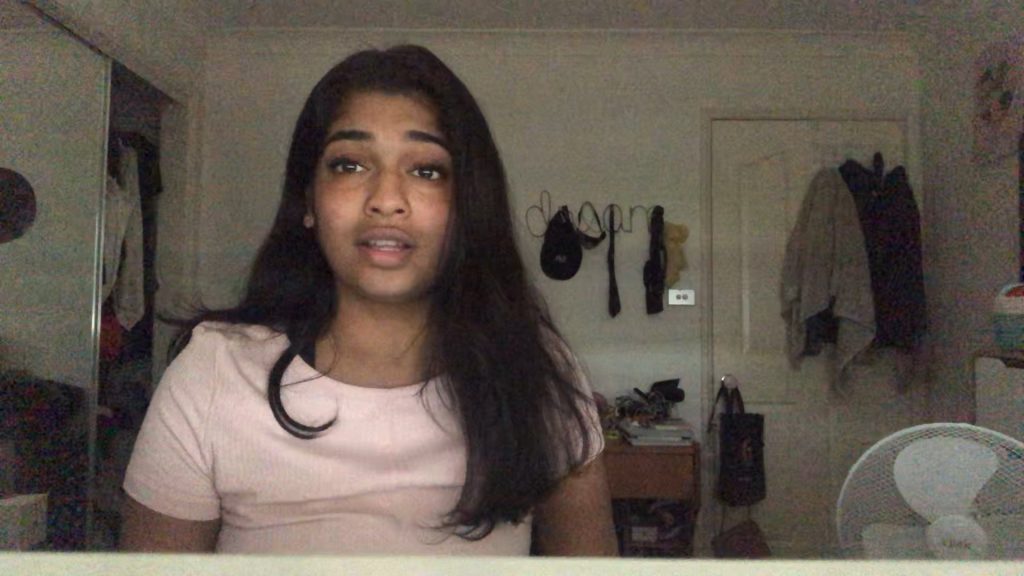
Tiara De Silva faced a lot of opposition from her peers for her environmental passion.
“The challenge for me wasn’t just the strike itself, more like the criticism I faced online, or even from people I knew. It took a huge toll on me to the point where I kind of let myself be walked over.
“I grew to accept what they said and kept my mouth shut solely out of fear of further judgement, but I was lucky enough to have supportive family, teachers and friends and they helped me realise that I wasn’t doing anything wrong.”
One of Doha’s most challenging moments led her to break down in tears in her car after a tense meeting with an unnamed external group, who tried to pressure them to do things a certain way.
“I rapidly became aware that not everyone who wanted to engage with us had the best interests of the movement at heart,” she said.
“One of the challenges that I had to overcome was learning how to negotiate with groups that were not respectful of the “youth-led” concept of the movement, while being inclusive but not assertive.”
While all this was going on the students still had to focus on getting the word out, and that meant dealing with the media — which meant dealing with the comments section.
The backlash they received is addressed in part two of the documentary, which is available on Junkee’s YouTube channel tomorrow.
“I always knew it was going to be hard but that made me stronger and to those people I thank,” Billie said.
“It made me the activist I am today.”
What Comes Next?
As Maiysha puts it, “We are the future voters, the future leaders and change makers. We are what democracy looks like for Australia”.
She is still involved with her local School Strike 4 Climate team in a graduate mentor role, as are Fatima and Anthony. Anthony has also started a Youth Environment Committee which plans to lobby local governments to implement policies that enable a greener future.
They’re in their first year of university, whereas Marco has decided to defer to focus on further activism – he’s also involved in campaigns against Adani, native forestry logging in Victoria’s central highlands and the Tarkine in Tasmania, while also working with Extinction Rebellion and Students Declare.
Doha, meanwhile, is seeking to one day hold a position on Adelaide’s City Council.
Tiara and Billie are still in high school and looking forward to the next SS4C on May 15 – and they hope to see you there.
Youth On Strike! is a three part series produced by Mashup Pictures in partnership with Junkee. The first episode is available to watch on Junkee’s YouTube channel now.


